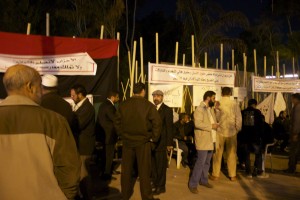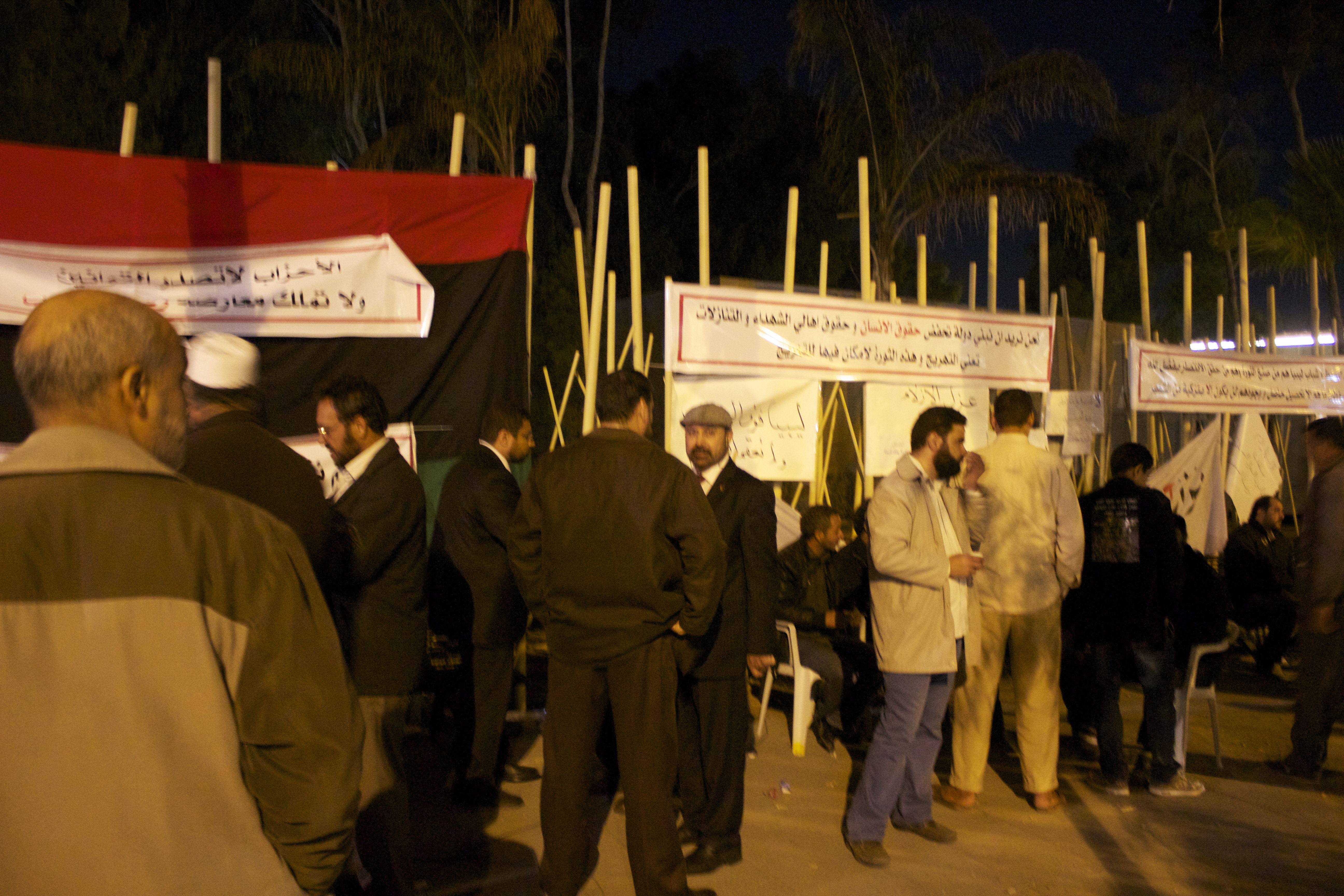By Tom Little.

Tripoli, 26 December:
The General National Congress (GNC) has approved a “Political Isolation Law” intended to bar senior political . . .[restrict]figures associated with Qaddafi’s rule from top posts in the government and Congress.
Members of the GNC voted the law through with 125 votes on Wednesday, Libyan news agency LANA reported, and they will now approve on a committee to approve the project and to finalise details.
This comes after more than a week of small-scale demonstrations across Libya calling for a law that would ensure that politicians and officials who were close to the Qaddafi regime do not have a role in political life in the new Libya.
Last night, around 100 protesters gathered outside the GNC building in Tripoli to make their demands heard there, and a number of GNC representatives who had supported the law addressed the crowds.
The demonstrators had been gathering there since Sunday, one attendee said, and had moved from a protest tent that they set up in Tripoli’s Martyrs’ Square last Friday.
One of the GNC members who spoke, Suliman Gajama, the independent representative for Yefren, told the Libya Herald that he was confident that the law would become effective within the next two weeks.
He compared it to moves to exclude figures linked to former regimes in Tunisia, Egypt and Iraq, saying “we want our revolution to be as clean as possible. We want a good constitution.”
He added that the law would not target minor officials from the Qaddafi era, saying: “We are asking that those who have been involved in the bloodshed in Libya, with the corruption, not be allowed to be represented in the government, and we want to include this in our future constitution or by laws.“
One of the organisers of the demonstration at the GNC, Naser Ghashut, of the Libyan Association for Human Rights, said that people he had talked to were frustrated by the lack of progress being made by the government.
He said: “It’s not that the government’s facing lots of problems. There are a lot of problems everywhere, but once you still have the same way of thinking, the same way of performing, the same political beliefs, you do things the same.”
Ghashut said many felt that removing figures closely linked to Qaddafi’s rule might encourage a change in the mindset of government.
Another attendee at the demonstration last night, Dr Mustafa Abushima, who teaches at Tripoli University, said that the law was necessary but would not lead to the persecution of those officials affected
“These people, when we isolate them, we are not accusing them or putting them in prison, they will be able to live their lives as normal inside the country but they will not be able to take the leadership in the country,” he told the Libya Herald.
However the exact details of the law are still unclear, and it has yet to be decided what criteria members of the government and the GNC would have to meet to be isolated.
It is also far from clear how many government and GNC officials might be affected by the law.
Some have also called for members of the judiciary who worked with certain court bodies to be targeted by the same law, and it is understood that this will form part of the discussions for a draft law in the coming weeks.
[/restrict]











